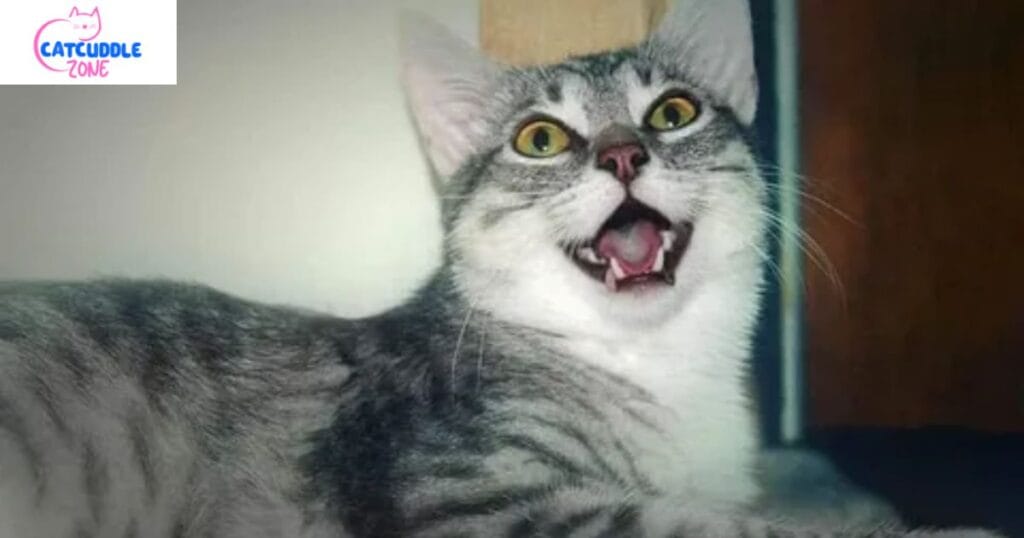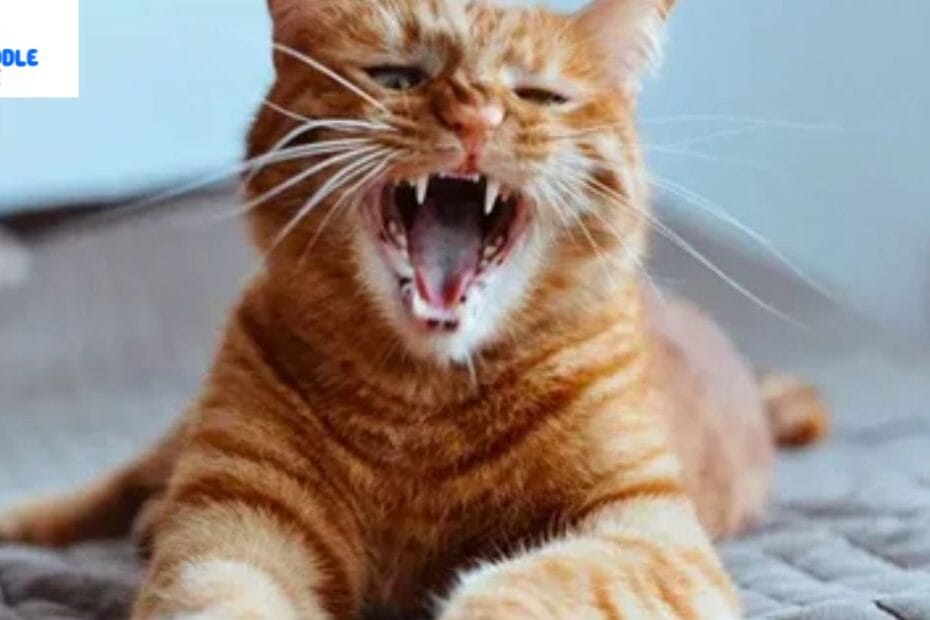If you’ve ever asked yourself, why is my cat breathing fast, you’re not alone. People who own cats often get scared when they notice different breathing patterns in their pet. There are times when fast breathing occurs naturally such as after a workout or games. Sometimes, it could point to a problem.
Breathing that seems rapid in your cat is called tachypnea. It occurs when your cat’s breathing moves faster than usual when at rest. One may suffer from these if they experience stress, high temperatures or something serious such as a respiratory infection or heart disease. Noticing possible illnesses may allow you to care for your cat at the proper time.
Common Signs of Breathing Problems in Cats
It is possible for you to spot your cat with their mouth open when breathing or their ribs are unusually active. These symptoms are early indications of a problem with a cat’s lungs. Should your cat extend its neck or make wheezing sounds, it may show there is a real issue.
Look out as well for more telltale signs, like a cough, runny nose, tiredness or dark blue gums. They think your cat might have an illness that needs to be looked at. When you observe these signs, pay close attention and act as fast as possible.
Causes of Fast or Heavy Breathing in Cats
There are many reasons why a cat might breathe fast or have trouble breathing. One common reason is asthma. When a cat has asthma, its lungs don’t work well, and it becomes a heavy breathing cat. The cat might also cough or make a wheezing sound. This can be serious and needs quick help from a vet.
Sometimes, a cat gets a respiratory infection from germs like bacteria or viruses. This can also lead to a cat breathing heavy. Another reason is hot weather. When it is very warm, cats may breathe faster to cool down.
Stress can also make a cat breathe fast. If the cat is scared or nervous, you might see rapid breathing in cats. Some cats have heart problems or even tumors, which can also make breathing harder.Overweight cats may also have breathing problems. Fat around their lungs can press on them and make it hard to breathe, which leads to rapid breathing in cats.
Emergency Symptoms You Should Never Ignore
Certain signs prove that your cat requires help now. If your cat is trying to breathe fast or is distressed with movement, contact your vet. If a cat’s gums are blue, this means the blood doesn’t have enough oxygen and is another emergency sign.
To diagnose a problem, it helps to use chest X-rays, blood tests and ultrasounds. He or she will examine the cat for problems related to the lungs or throat, asthma in felines and any heart-related disease. Beginning with tests, doctors can find the treatment that suits the patient best.
Diagnosing the Cause – What Vets Check
Your cat’s veterinarian will test for different reasons why your cat’s breathing is rapid. They are likely to listen to your chest, check your gums and hear what is emanating from your heart and lungs. In some cases, owners may want to talk about their cat’s home, what they eat and how they act every day.
Your cat will probably be prescribed drugs to help the heart and control the buildup of fluid in its lungs if they have heart disease. It is important to act fast since the treatment should start swiftly. There are circumstances where surgery must be done to handle the problem.
Treatment Options for Breathing Problems in Cats
Treatment depends on what’s causing the problem. For respiratory infections, antibiotics or antiviral meds may be used. If it’s feline asthma, inhalers or steroids are often given. Oxygen therapy is needed in some serious cases.
If your cat has heart disease, medicine to help the heart and reduce fluid in the lungs will be given. Fast breathing cat treatment is most effective when given early. In some cases, surgery may also be needed.
| Condition | Common Treatment |
| Feline Asthma | Steroids, inhalers |
| Respiratory Infection | Antibiotics, antivirals |
| Heart Disease | Diuretics, cardiac meds |
| Obesity | Weight loss plan, diet change |
| Stress/Anxiety | Calming sprays, quiet environment |
Home Care Tips for Cats with Breathing Issues
At home, it’s important to keep your cat calm and in a peaceful environment. Avoid loud noises and limit activity. A clean room with good airflow helps cats breathe better. Use a humidifier to ease cat breathing issues.
Help your cat to always drink enough water and eat the right foods. Controlling your cat’s weight is very important when they have obesity-related breathing problems. Look after your pet closely and report any signs of change to a veterinarian.
How to Prevent Breathing Problems in Cats

Preventing breathing problems means taking good care of your cat every day. Keep your home free from smoke, strong smells, and dust. These can trigger feline asthma or worsen other cat respiratory problems.
Make sure to visit the vet every now and then to maintain your pet’s health. Let your cat’s immunizations be up-to-date so they don’t easily catch respiratory infections. Provide cats with a comforting haven such as a Desk Cat Nest which lets them feel at ease and try to know cat facts.
When to Visit the Vet Immediately
If your cat starts breathing fast and nothing has changed in their activity or environment, call your veterinarian. If your cat shows signs like blue gums, open-mouth breathing, or cannot lie down, it’s an emergency.
If you postpone care, your problem might develop further. If your cat settles down as time goes on, anyway it’s a good idea to consult a vet. It’s never right to predict how bad a cat’s breathing problem may be. Proper care for cats by vets can mean a lot.
Final Thoughts – Keep Your Cat Healthy and Safe
So, why is my cat breathing fast? There are many possible reasons—from minor stress to serious heart disease. As a cat owner, staying alert and informed is key. Know the signs, keep your home safe, and visit your veterinarian when needed.
Ensure your cat’s environment is peaceful, its diet is a healthy one and routine trips to the vet are made. Having a Desk Cat Nest nearby can soothe your pet’s worries and provide it with somewhere nice to rest. Taking care of your cat gently can keep them free from respiratory issues and let them live a long, happy life.
Frequently Asked Question
Should I be worried if my cat is breathing fast?
Yes, if your cat is breathing fast while resting or shows other signs like blue gums or lethargy, contact your vet immediately.
How can I calm my cat’s breathing?
Move your cat to a quiet, cool area, reduce stress, and ensure it feels safe; consult a vet if symptoms continue.
When should I be concerned about my cat’s breath?
If your cat’s breath is unusually fast, labored, or noisy, or they seem tired or uncomfortable, it’s time to see the vet.
What does a cat in respiratory distress look like?
It may breathe with its mouth open, show blue gums, flare its nostrils, and appear anxious or weak.
What does rapid breathing in a cat look like?
Your cat may have quick chest movements, breathe with effort, or appear restless even while lying down.

Pingback: Wolf Worms in Cats: Causes, Symptoms, Treatment & Prevention